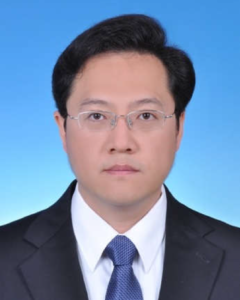Read Myungwoong’s Emerging Investigator article, ‘Comprehensive studies of continuous flow reversible addition–fragmentation chain transfer copolymerization and its application for photoimaging materials’
Check out our interview with Myungwoong below:
1. How do you feel about Polymer Chemistry as a place to publish research on this topic?
I have enjoyed reading the articles in Polymer Chemistry. I have been impressed by the journal scope, especially respecting and embracing conventional, but fundamental and significant polymer chemistry topics, for example, polymerization kinetics and photopolymer chemistry. However, the journal has also been enthusiastic to publish high quality articles dealing with cutting edge topics. This unique balancing makes me keep following every day and considering Polymer Chemistry as a place to publish.
2. What aspect of your work are you most excited about at the moment and what do you find most challenging about your research?
For the patterns in single-digit nanometer dimension, the size becomes equivalent to less than ten copolymer chains. In this limit, the homogeneity of the copolymer system gets important to improve the pattern quality, such as line edge roughness. The continuous flow process shown in our work can address this issue; however, it also gave us an important message: the compositional drift due to unequal reactivity between monomers results in an intrinsic compositional inhomogeneity in copolymer samples. This is further related to the fundamental challenging question: “can we precisely control the structure and composition of complex polymers?”.
3. In your opinion, what are the most important questions to be asked/answered in this field of research?
How do we precisely control compositional and structural parameters of polymers, for example, sequence, desired chemical functionalities, molecular weight, and its distribution, while the high complexity is attained? Can we produce this elegantly shaped polymer in a large quantity? How are the parameters correlated with the resulting properties, for example, the position of developable unit in the chain vs. the quality of photopattern? Can we expand these challenges to more complex polymeric systems such as crosslinked polymer networks and polymer thin films?
4. Can you share one piece of career-related advice or wisdom with other early career scientists?
We all experience failure. No one can become always successful. This should be the case especially for early career scientists including me. I have thought of an inspirational quote that was personally given to me by Prof. Hyuk Yu, Emeritus Professor of Chemistry at University of Wisconsin at Madison, and now I am so happy to share this with other early career polymer scientists: “Life and hope are viscoelastic. Failure should take time to restore, but never yield to or break by it. Bend and recover!!!”. This may be the advice given to us by polymer, our lifelong friend, as well.


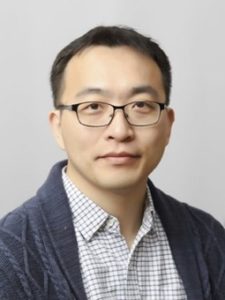










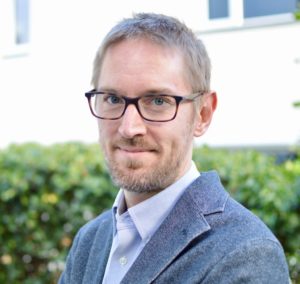
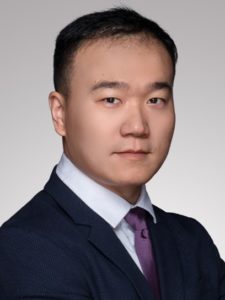
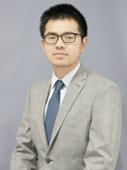
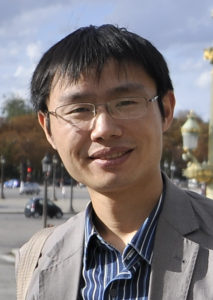 Saihu Liao studied chemistry at Huazhong University of Science and Technology, and obtained his bachelor degree in 2005. After two years of graduate study with Prof. Yuefa Gong at the same university, he joined Prof. Benjamin List’s group at the Max-Planck-Institute for Coal Research (MPI-KOFO), Germany, where he obtained his doctoral degree in organic chemistry in 2011. Then, he returned to China and joined Prof. Yong Tang’s group as a research associate at the Shanghai Institute of Organic Chemistry (SIOC), Chinese Academy of Sciences. In September 2016, he started his independent career at Fuzhou University, where he was promoted to full professor in 2017. His current research focuses on the development of new organocatalysts and new strategies for polymerization, with a special concern to photo-control and tacticity-regulation.
Saihu Liao studied chemistry at Huazhong University of Science and Technology, and obtained his bachelor degree in 2005. After two years of graduate study with Prof. Yuefa Gong at the same university, he joined Prof. Benjamin List’s group at the Max-Planck-Institute for Coal Research (MPI-KOFO), Germany, where he obtained his doctoral degree in organic chemistry in 2011. Then, he returned to China and joined Prof. Yong Tang’s group as a research associate at the Shanghai Institute of Organic Chemistry (SIOC), Chinese Academy of Sciences. In September 2016, he started his independent career at Fuzhou University, where he was promoted to full professor in 2017. His current research focuses on the development of new organocatalysts and new strategies for polymerization, with a special concern to photo-control and tacticity-regulation.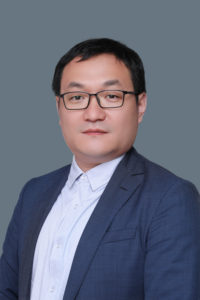 Shaofeng Liu is a professor at College of Polymer Science and Engineering at Qingdao University of Science and Technology. He received his B.S. in 2005 from Central South University, obtained his Ph.D. in 2011 from Institute of Chemistry Chinese Academy of Sciences (ICCAS) and Université de Strasbourg (UDS) under the supervision of Prof. Wen-Hua Sun and Prof. Pierre Braunstein. He then joined the group of Prof. Tobin J. Marks at Northwestern University as a postdoctoral fellow (2011-2014). In 2015, he moved to Qingdao University of Science and Technology and started his independent research career. His current research interests include organometallic catalysts for olefin polymerization and organocatalysts for sustainable polymers by ring-opening polymerization.
Shaofeng Liu is a professor at College of Polymer Science and Engineering at Qingdao University of Science and Technology. He received his B.S. in 2005 from Central South University, obtained his Ph.D. in 2011 from Institute of Chemistry Chinese Academy of Sciences (ICCAS) and Université de Strasbourg (UDS) under the supervision of Prof. Wen-Hua Sun and Prof. Pierre Braunstein. He then joined the group of Prof. Tobin J. Marks at Northwestern University as a postdoctoral fellow (2011-2014). In 2015, he moved to Qingdao University of Science and Technology and started his independent research career. His current research interests include organometallic catalysts for olefin polymerization and organocatalysts for sustainable polymers by ring-opening polymerization.  Nick Warren is an Associate Professor at School of Chemical and Process Engineering at the University of Leeds. He was awarded an Masters in Chemistry from the University of Bristol in 2005 following which he conducted two years industrial research. He then moved to the University of Sheffield where he obtained a PhD in Polymer Chemistry. He continued as a postdoctoral researcher in Sheffield working in the area of polymerisation-induced self-assembly (PISA) until 2016, when he moved to Leeds to start his independent research career. His research group aims to design a new generation of sustainable and functional polymer materials by exploiting the latest advances in both polymer chemistry and self-optimising reactor technologies equipped with advanced online monitoring and computer control. He can be found on Twitter
Nick Warren is an Associate Professor at School of Chemical and Process Engineering at the University of Leeds. He was awarded an Masters in Chemistry from the University of Bristol in 2005 following which he conducted two years industrial research. He then moved to the University of Sheffield where he obtained a PhD in Polymer Chemistry. He continued as a postdoctoral researcher in Sheffield working in the area of polymerisation-induced self-assembly (PISA) until 2016, when he moved to Leeds to start his independent research career. His research group aims to design a new generation of sustainable and functional polymer materials by exploiting the latest advances in both polymer chemistry and self-optimising reactor technologies equipped with advanced online monitoring and computer control. He can be found on Twitter 